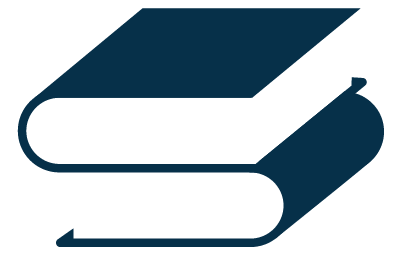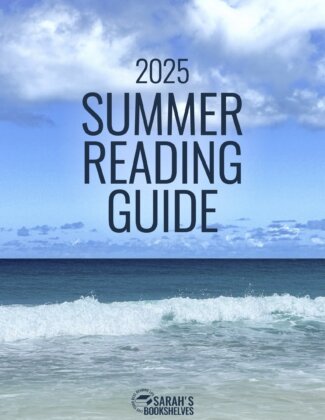
There’s something about the stage of life I’m in right now that really has me gravitating towards “women who get women.” I didn’t know I needed this kind of writing in my life until I stumbled across Anna Quindlen (well, stumbled isn’t quite accurate…my aunt actually kept telling me I needed to read her). I listened to Lots of Candles, Plenty of Cake on audio and kept screaming “yes, that’s exactly how it is” over and over in my head. After I finished the audiobook, I felt like I’d seen a therapist.
I’m now experiencing marriage, motherhood, and a struggle to maintain my own identity through all of that (a struggle that I never anticipated nor even really knew was all that common until I ended up in it). Seeing many things I’d been thinking and feeling put so eloquently on the page brought a tremendous sense of relief…and camaraderie that others struggle with the same things. This is one of my favorite joys of reading.
All that being said, I don’t think these particular authors would have resonated with me before my thirties because I didn’t have the necessary experience under my belt to appreciate their wisdom. So, save these fantastic women authors for well after college…
Latest Addition(s) (May 23, 2019)
Mary Laura Philpott
I Miss You When I Blink (my review)
Mary Laura is my latest addition to this club. She focuses on finding fulfillment from your life through small changes. She discusses perfectionism, female friendship in later life, finding your purpose, and feeling comfortable voicing your need for mental peace even though you seem to “have it all.”
The to-do list was supposed to get smaller and smaller as you checked off everything you meant to do and approached the finish line of bona fide adulthood. Instead, you got to the end of the list and didn’t feel like you’d arrived anywhere.
The “Women Who Get Women” Authors Club
Kelly Corrigan
Tell Me More (my review), Glitter and Glue (my review)
My introduction to Kelly Corrigan was through Tell Me More and she immediately reminded me of a funnier, more irreverent, and more emotional Anna Quindlen. She touches many important life issues: marriage, motherhood, illness, religion, friendship, grief, and loss. And, she said things that inspired me to be better and things that made me feel like I’m absolutely not alone in the moments where I’m not better.
We all kind of hate each other in this minute, me most of all because I taught them the word bitch and I yell so they yell and Edward misses another brawl so they’ll like him more today and he’s better anyway and whatever lust for combat my daughters have comes straight from me and I thought I was going to be a good mom like Michelle Constable or Tammy Stedman and I’m not and according to a parenting blog I saw, yelling is as bad as corporal punishment and particularly destructive to self-esteem so oh my God, what am I doing?
Anne Morrow Lindbergh
Gift from the Sea
My mom first gave me this book while I was pregnant with my first child. I didn’t quite connect with it then, but I re-read it after having my second child and that changed completely. Lindbergh beautifully vocalized the many conflicted feelings I’d been having about motherhood, maintaining my identity, etc. It’s every bit as relevant now as it was in the 1950’s.
What a circus act we women perform every day of our lives. Look at us. We run a tightrope daily, balancing a pile of books on the head. Baby carriage, parasol, kitchen chair, still under control. Steady now! This is not the life of simplicity but the life of multiplicity that the wise men warn us of.
Maggie O’Farrell
I Am, I Am, I Am
Through her essays about near-death experiences, O’Farrell imparts wisdom about life, especially for women. She touches motherhood, illness, fitting in, etc. She makes you keenly feel your own mortality.
The people who teach us something retain a particularly vivid place in our memories. I’d been a parent for about ten minutes when I met the man, but he taught me, with a small gesture, one of the most important things about the job: kindness, intuition, touch, and that sometimes you don’t even need words.
Camille Pagan
Woman Last Seen in Her Thirties
Through Maggie’s story of realizing she had lost her identity after having children and her struggle to regain it again, Camille Pagan talks real talk about aging, marriage, divorce, finding your identity, and piecing your life back together after an upheaval. Pagan reminds me of a lighter, more sarcastic version (her salty humor is on point!) of Anna Quindlen and I recommend this one particularly to the mothers out there.
I had not taken particularly good care of myself over the years, and it wasn’t like I could get a free pass by wearing a pin that said, I look like this because I have been caring for everyone else.
Anna Quindlen
Lots of Candles, Plenty of Cake (my review), Every Last One (my review), Living Out Loud
Listening to Lots of Candles, Plenty of Cake was like seeing a therapist. Quindlen just has such a grounded, practical outlook on life (particularly female friendship, aging, motherhood, marriage, and solitude) that really puts things in perspective for me. She’s probably the President of this club in my book.
There comes that moment when we finally know what matters and, perhaps more important, what doesn’t, when we see that all the life lessons came not from what we had but from who we loved, and from the failures perhaps more than the successes.
Cheryl Strayed
Tiny Beautiful Things, Brave Enough
Strayed is warm, relatable, and non-judgmental in her counsel and most people will find something in her writing that pertains to their own life past or present. Her advice generally boils down to the overarching theme of “be your true self.”
Trust yourself. It’s Sugar’s golden rule. Trusting yourself means living out what you already know to be true.
Meg Wolitzer
The Wife (my review)
The Wife explores the power dynamics of marriage. It’s about living life as a “babysitter for a successful man’s ego,” being married to a “gigantic baby,” and explores the role of “the wife” in society and the expectations and pressures that come along with that. It tackles the conundrum many women face of choosing to harness their talents or devote themselves to their families…or some balance between the two.
Everyone knows how women soldier on, how women dream up blueprints, recipes, ideas for a better world, and then sometimes lose them on the way to the crib in the middle of the night, on the way to the Stop & Shop, or the bath. They lose them on the way to greasing the path on which their husband and children will ride serenely through life.
What type of authors do you most identify with right now? What other “women who get women” authors do I need to read?


I’m definitely going to read Woman Last Seen in her Thirties and The Wife from this list. I also liked the audio of Lots of Candles, Plenty of Cake. I’d probably add Brene Brown to your list!
What a great idea, Sarah! I love it and think the authors you’ve grouped in this list really do speak to women and their unique struggles. On the humorous side I might add Allison Pearson to your list. I’ve only read How Hard Can It Be?, but that book was so, so accurate on life for women as they approach 50.
I tried that one and was just kind of annoyed with the style 🙁
This is a great category you’ve created! I’ve read work by six of your authors. I have a feeling I haven’t read the best stuff from Wolitzer yet, but I am a firm fan of Maggie O’Farrell. Some of Elizabeth Gilbert’s work and Anne Lamott’s earlier stuff could also fall into this category for me.
I still need to read Anne Lamott! And The Wife is my favorite Wolitzer 🙂
And I still need to read This is the Place by O’Farrell..it’s sitting on my Kindle waiting for me!
I do love Corrigan’s voice so am making note of the others. Thanks for the list.
Great post! I hope you keep expanding the list. I recommend Lydia Kiesling’s new novel The Golden State.
I tried that one and couldn’t do the writing style unfortunately 🙁
Love this list! I’m totally with you when it comes to those glimpses of writers who “get it”–because so many of the difficulties of life in this stage came as a surprise to me as well. It makes me feel a lot less alone in those struggles when I come across a quote or passage that I could have written.
I’ve read several of these, but you’ve also convinced me to pick up The Wife.
Totally agree! And you definitely need to get The Wife!
I read Morrow Lindbergh in my 40s and was amazed at how deeply she resonated.
Of course, Quindlen can’t be beat, but I thought I was the one who pushed you into her!
The only book/author who comes immediately to mind is Olga Grushin’s Forty Rooms. I was bowled over by her story of one woman’s look at life.
I think you pushed me to Quindlen’s fiction, but I’d listened to Lots of Candles first?
And my mom told me after reading this post that HER mother actually gave her Gift from the Sea, which I didn’t know before!
I never realised how much I need and appreciate women writers until I started working my way through a list of mostly-male authors. The difference is really startling, particularly in terms of fiction and the way that they write female characters. I’ve encountered so many terribly-written female characters at the hands of men, it’s the quickest way to jolt me out of a story. It’s taught me a lot about choosing books and which ones are going to resonate for me. I’d love to add Elena Ferrante to your list – she is incredible (and I know there’s a rumour that she’s actually a male author, given that she writes under a pseudonym in complete anonymity, but the way that she writes… I can just *tell* it’s a woman, in my guts).
I haven’t tried Ferrante – I know I should but the thought of having to read three books keeps making me push it down the list!
Believe me, it’s SO worth it!! I found I chewed through it really quickly – not that the writing was cheap or overly expository, but that it was so immersive, it felt like it flew by. <3
I don’t like gender politics. One of the best books I’ve read about abuse towards women was Roddy Doyle’s “The Woman Who Walked Into Doors.” Quindlen and Pagan are amateurs when compared with this.
In this era where we’re all about pulling apart, pointing fingers and distrusting each other as Americans, playing specialty cards, whether they be race or gender, isn’t helping the nation find its way.